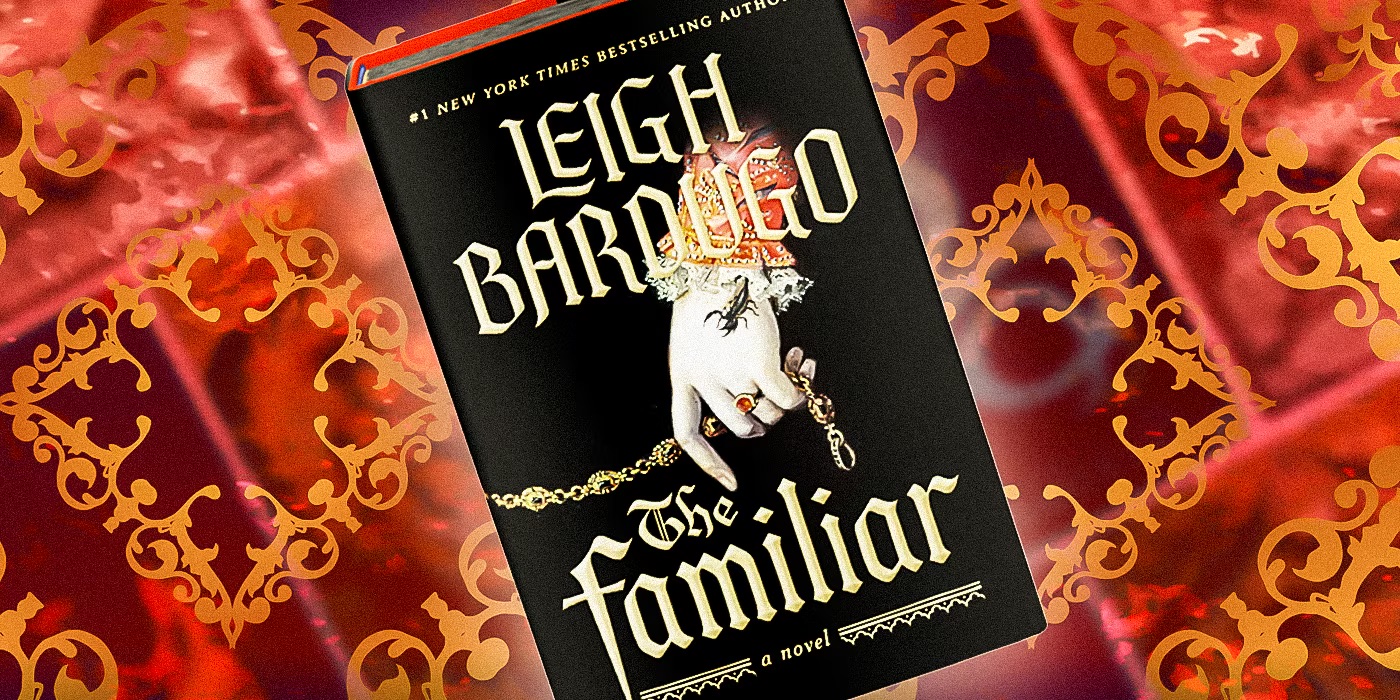It can be refreshing to see an author step outside of their comfort zone and take a gamble, at least in spirit. Known for her Grishaverse books — now staples in young adult fantasy — Leigh Bardugo dives into historical fiction fantasy with “The Familiar,” her latest adult standalone. Inspired by her family history, Bardugo takes us back to 16th century Spain, an era of fear mongering and persecution. The inside blurb promises “a world of seers and alchemists, holy men and hucksters, where the line between magic, science, and fraud is never certain.” I counted a total of two seers, a fleeting mention of an alchemist, one too many holy men, and zero hucksters. In other words, “The Familiar” fails to deliver on many promises, with Bardugo sacrificing fantastical elements and worldbuilding for a more personal narrative.
Our protagonist is Luzia Cotada, a young kitchen scullion in service of a cruel mistress and her unfeeling husband, both of whom are slipping down the social ladder. As a conversa (a Jew who converted to Catholicism) in Madrid during the Inquisition era, she lives each day with her head down, trying not to attract unwanted attention. To keep her sanity and her spirit alive, Luzia secretly performs small amounts of magic to help with chores and errands. By accident, the mistress discovers Luzia’s “milagritos” and forces her to perform for dinner guests increasing by the day. Eventually, they garner the attention of Antonio Perez, the disgraced secretary of the king, who sweeps Luzia into his grand scheme to win back favor. With help from her elusive Aunt Hualit and a mysterious, immortal mentor, Luzia must hone her magic and navigate political intrigue without losing herself in the process.
“It is a danger to become nothing. You hope no one will look, and so one day when you go to find yourself, only dust remains, ground down to nothing from sheer neglect.”
“The Familiar” takes the opportunity to explore different angles of power and intersectionality through a historical lens. At times, Bardugo zooms out from Luzia’s plights to observe how Luzia’s companions are affected, naturally and inexplicably, by her good and bad fortune. In a slice-of-life style, we observe her mistress’ chronic dismay at her social status and loveless marriage contrasted with her aunt’s precarious scheming as a nobleman’s mistress. Bardugo tests the boundaries of relationships and power dynamics to explore how classism and sexism oppress together; however, the nature of a fantasy standalone doesn’t allow for meaningful character growth.
At the end of the story, following a poorly-paced climax, vignettes of Luzia’s family, friends, and enemies twinkle then fall away before a satisfying ending. Additionally, Luzia’s magic arises from reciting “refranes” (old sayings) in Ladino, an archaic form of Spanish mixed with Hebrew. This manifestation of her multiple identities coming together to become something more is a nice touch.
Bardugo makes many writerly changes that simply don’t work for this story. In contrast to her past urban fantasy books, there is minimal sculpting of Madrid as more than a backdrop. In her “Six of Crows” duology, she describes the city of Ketterdam like a character in itself that shapes and is shaped by the people in it. The only elements of Madrid that make an impression on Luzia (and the reader) are religious piety, squalor, and debased men. Unlike her previous work, Bardugo fails to create a tangible and unique setting that drives her story forward. On top of this, her method of “telling” her characters rather than “showing” them fails to make them memorable. Luzia reads like a variation of fiery Nina Zenik from “Six of Crows,” except Nina had stronger ties to her homeland and culture. Under the constant threat of the Inquisition, Luzia has no choice but to hide her true identity and capabilities. While Bardugo’s young adult characters have careful proportions of greed and integrity, her adult characters will chase power and freedom at all costs. Luzia very much desires the wealth that will come with being a servant of the king as much as she desires to live freely as a Jew.
In spite of all the book’s flaws, at the heart of Bardugo’s half-baked character arcs and ideas is a resounding message of preservation through perseverance. Her voice shines through in Luzia’s reflections on the cruelness and corruption of the Inquisition: “After hundreds of years, if there were so many sinners left, what had the Inquisition accomplished? They might root out Jews and Muslims and Erasmists and alumbrados, but then what was left? The machine had been built to consume heresy and impiety, so would it simply keep finding heresy and impiety to feed on?” Instilled in Luzia from all the tragedy she experiences is the mentality “if one of us survives, all of us do.” If not to save herself, she resists the temptations of death to allow her ancestors to live on inside of her. Her struggles and traumatic experiences dealt by the Inquisition are presented in a brutal but not gratuitous way, alluding to their reality. Unlike most victims of the Inquisition, Luzia’s story ends in triumph over evil and freedom of the self.
“The Familiar” is underdeveloped compared to Leigh Bardugo’s past works but still worth a read for its compelling personal narrative. If you like the sound of immortal-teacher-meets-fiery-youngling romance, then by all means, dive in! If not, though, then all this novel does is announce Bardugo’s arrival into the realm of historical fiction fantasy.
Rating: 3/5 stars
Image courtesy of ScreenRant









